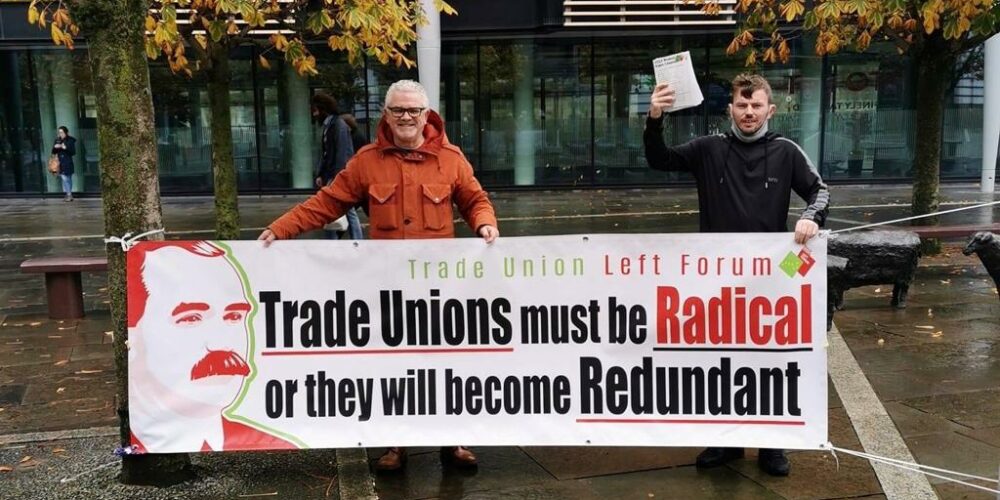The Trade Union Left Forum announced on May Day that it is near to completing a draft bill to restore rights lost to workers as a result of anti-union legislation dating from the 1940s.
The TULF has been campaigning against the Industrial Relations Act (1990) and also anti-worker legislation in the North for the last four years, with some successes, as a number of unions, along with the next generation of workers in the Union of Students in Ireland, have called for it to be abolished. Others have called for it to be reformed.
This battle against anti-worker legislation was brought to a new level when a motion sponsored by the Dublin Council of Trade Unions was unanimously supported at the recent biennial delegate conference of the ICTU. The motion called for legislation to be introduced to restore all rights lost to workers as a result of the introduction of the 1990 act.
The TULF has campaigned since then to put pressure on trade unions and the ICTU by calling for a Workers’ Rights Act. Numerous calls were made for the ICTU to start the process and set up a committee and employ the expertise needed to identify and draft the necessary legislation.
Some unions in the interim have already passed motions of support at their congresses calling for the ICTU to act on the DCTU motion and to instruct the ICTU Executive “to seek an alternative legislative regime which would allow trade union and industrial action for workers, for issues that concern workers across society and across employers, and for effective solidarity to workers in dispute.”
Unfortunately nothing has been forthcoming from the ICTU or any of its affiliates. It appears that the ICTU and unions affiliated to it are happy to let this motion grow dust on the shelf in head office, or don’t see it as an urgent priority. The TULF stepped in and filled this void, not willing to stand idly by and let this battle for workers’ rights stop with a motion at Congress. If the ICTU won’t act, ordinary workers will.
The Fair Employment (Miscellaneous Provisions) Bill (2022) will be launched by the TULF on 2 June in Dublin. It will cover numerous workers’ rights lost to trade unions, along with union recognition, union access to all workers, and collective bargaining rights. The TULF will be calling for the ICTU to launch a national campaign, in conjunction with affiliated unions and trades councils, to seek the support of the Government, political parties, Dáil deputies, senators, local authorities and wider society to amend existing legislation and to introduce the Fair Employment Bill, which will be the first step to starting the process to tip the balance of power back to workers.
This was a huge task for volunteer grass-roots union activists to take on in their spare time, and an indictment of the lack of action, ambition and urgency by unions and the ICTU in building on motions and policies adopted since the Congress.
The TULF follows in the long line of self-sacrifice made by ordinary workers in achieving all that workers have achieved. They are not willing for hard-won gains to be sacrificed by trade unionists who have never stood on a picket line in their lives but have lived on the backs of the struggles and sacrifices made by previous generations of workers.
Anyone looking for information can contact the TULF through its email address: tuleft@gmail.com
In the meantime, on 7 May the TULF will host a discussion with the newly elected general secretary of Unite, Sharon Graham, entitled “How to build working-class power,” as part of this year’s James Connolly Festival, sponsored by Socialist Voice. Since her election last year, Unite has gone on the offensive in fighting for workers’ rights, with many victories for workers and new ground won. As a result, the membership of Unite is growing, as these victories inspire and embolden workers to organise and fight for a bigger share of the profits they produce.
At this discussion, Sharon and other union activists from the TULF will map out the pathway back to radical trade unionism.
These two strategic initiatives by the activists of the TULF will amplify its slogan:
Trade unions must be radical or they will become redundant.






